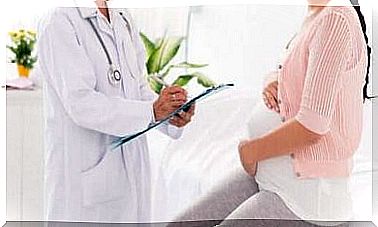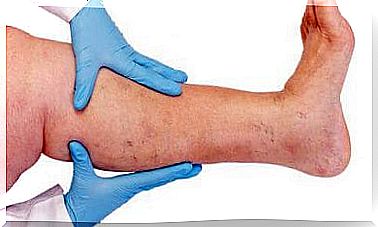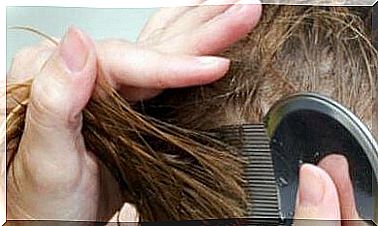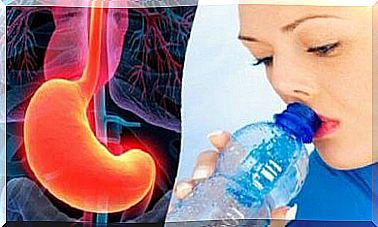The Link Between Hemorrhoids And Pregnancy
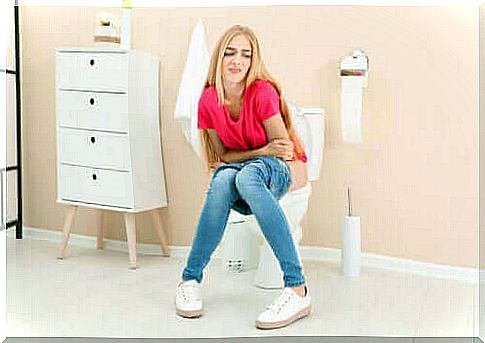
Hemorrhoids are an unpleasant and troublesome condition that often affects women during pregnancy. They are due to a dilation of the veins in the rectum.
Some women only develop hemorrhoids during pregnancy, but others also develop them at other times in life. In any case, they are much more common during pregnancy. In fact, calculations show that up to 50% of pregnant women have hemorrhoids.
This condition usually develops from the second trimester of pregnancy onwards. It tends to appear during and after birth and causes extreme discomfort, although it does not endanger a pregnancy. They can definitely be prevented and treated.
What are hemorrhoids and what is their relationship to pregnancy?
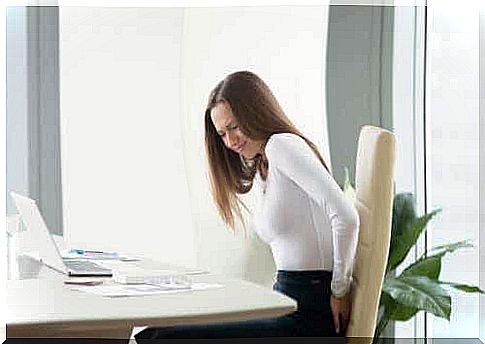
These are swollen blood vessels located in the rectum and look like swollen pads in the anus or lower rectum. Such pillows contain many veins and arteries.
The swollen “pearls” vary in size and usually cause pain and itching that increases during bowel movements. Hemorrhoids tend to bleed and can be a source of anxiety in pregnant women.
These lesions cause pain and discomfort when sitting or walking. It can even be difficult to find a comfortable sleeping position. Hemorrhoids can be of two types, and we will discuss them below.
Types of hemorrhoids
These can be internal or external. The former appears inside the anus, in the area where the rectum begins. They can come out of the anus if they are large, and we refer to these as prolapsed hemorrhoids.
Unless they prolapse , internal hemorrhoids are usually less painful than external hemorrhoids, but tend to bleed more. Exterior occurs outside the anus and is usually more painful and uncomfortable.
Exterior looks like painful lumps around the anus and causes great discomfort when sitting. They can also bleed or become even more painful if they are under pressure.
What causes hemorrhoids during pregnancy?
Several factors affect the incidence of hemorrhoids during pregnancy. First and foremost, the growing fetus causes the uterus to enlarge, and this in turn generates more pressure on the blood vessels in the anus and rectum.
In addition, the increase in the hormone progesterone during pregnancy may also play a role. This causes the walls of the veins to relax, and they are therefore more prone to swelling.
Estimates also suggest that up to 38% of pregnant women experience constipation. This is because the growing uterus puts pressure on the gut and sometimes the consumption of iron supplements. At the same time, pregnancy hormones reduce intestinal transit.
Together, the stool becomes harder and puts more pressure on the rectal veins when it is to be eliminated. This leads to inflammation. Usually women who have had this problem before pregnancy also develop it during pregnancy.
Available treatments
Hemorrhoids sometimes disappear on their own after pregnancy and childbirth, without treatment. However, it is not a good idea to leave them untreated, as they can worsen and either significantly affect the quality of life or cause major complications.
It is common to resort to home remedies first, as these are usually effective in most cases. The best thing you can do is go to the doctor to start a more formal treatment if there is no improvement. So what is the best way to treat hemorrhoids during pregnancy? Let’s take a look.
At home
Some of the home remedies that can help reduce swelling and relieve symptoms are:
- Do not sit or stand for long periods and walk a little every hour or so
- a daily workout of 30 minutes can activate circulation
- use a pillow or a seat to sit on
- a hot water bath several times a day helps relieve pain
- Cold compresses or ice packs on the site help reduce swelling and pain
- Wet wipes are preferable to toilet paper, even better if they contain witch hazel but should not contain perfume or alcohol
- Lying on your left side is best for sleeping, and you can do it several times a day to relieve discomfort
- Kegel exercises not only help prepare for childbirth, but also help relieve hemorrhoids
At the doctor’s office
Always consult a doctor when you bleed during pregnancy, even if you seem to be sure it is due to hemorrhoids. They can help treat hemorrhoids.
Usually they will prescribe a laxative or suppositories to treat constipation. They may also prescribe painkillers or ointments that are safe during pregnancy to relieve some of the discomfort.
Your doctor may also prescribe one of the following treatments:
- Rubber band binding. A rubber band is placed around the base of the hemorrhoid. This stops the blood flow and the lump falls off after about 10 to 12 days. It will be a scar that prevents the problem from recurring in the same place.
- Sclerotherapy consists of injecting a chemical into the hemorrhoids. It helps them shrink and heal, but they may reappear after a while.
- A hemorrhoidectomy is a surgical procedure to remove hemorrhoids. It is only recommended for severe cases or those where there are complications due to the risk involved.
- Hemorrhoids are a surgical procedure in which pins are implanted to place hemorrhoids inside the anus when they prolapse.
Ways to prevent hemorrhoids during pregnancy

Ideally, one should prevent hemorrhoids instead of treating them. The best way to do this is to prevent constipation. To do this, it is important to drink plenty of water and maintain a diet rich in fiber. Take a fiber supplement if necessary.
Also try to maintain a stable eating plan, avoid gas-producing and astringent foods, chew your food slowly and thoroughly and exercise regularly. Other appropriate measures are:
- drop cycling
- Do Kegel exercises as often as you can
- Do not wait to go to the bathroom until you feel the need
- do not sit long on the toilet
- also try not to force out stools to avoid exertion
- skip the iron supplements
- lie on your side while sleeping, reading and watching TV
- maintain optimal weight
Final recommendations
It is important to see a doctor if the hemorrhoids get a bluish tint or the symptoms worsen to the point that makes daily activities difficult. Also see your doctor if there is a lot of bleeding.
Regardless, ask your doctor about home remedies before starting them. It is important to start treatment early because hemorrhoids can cause many complications if they are allowed to develop. In addition, pregnant women must maintain preventive measures after giving birth.



